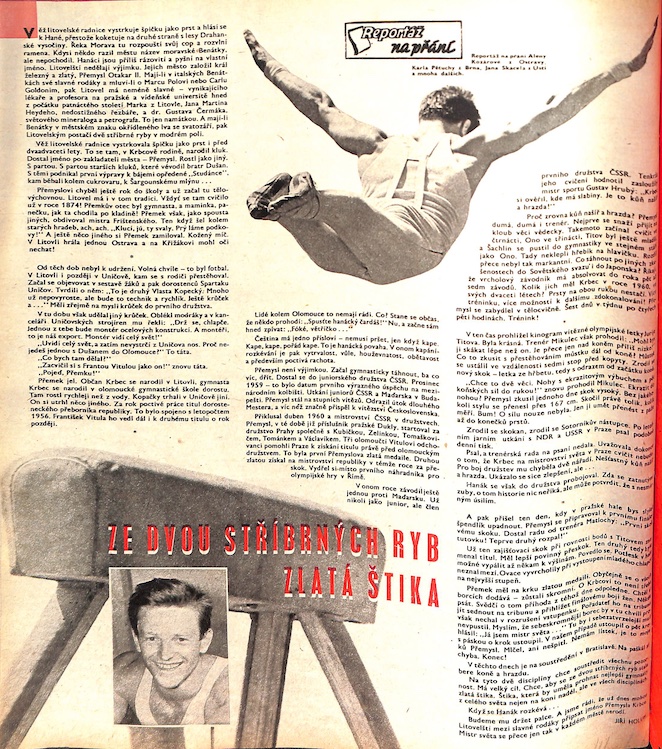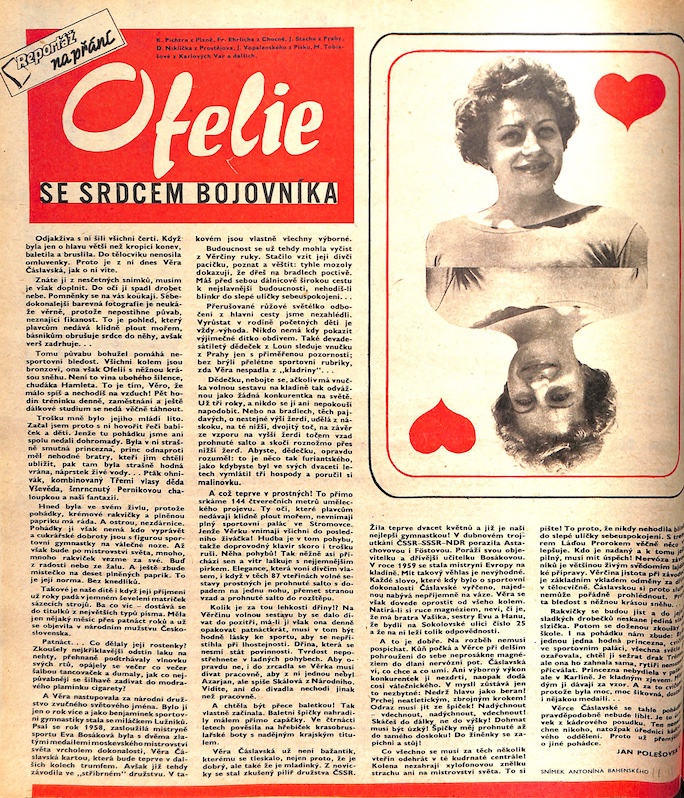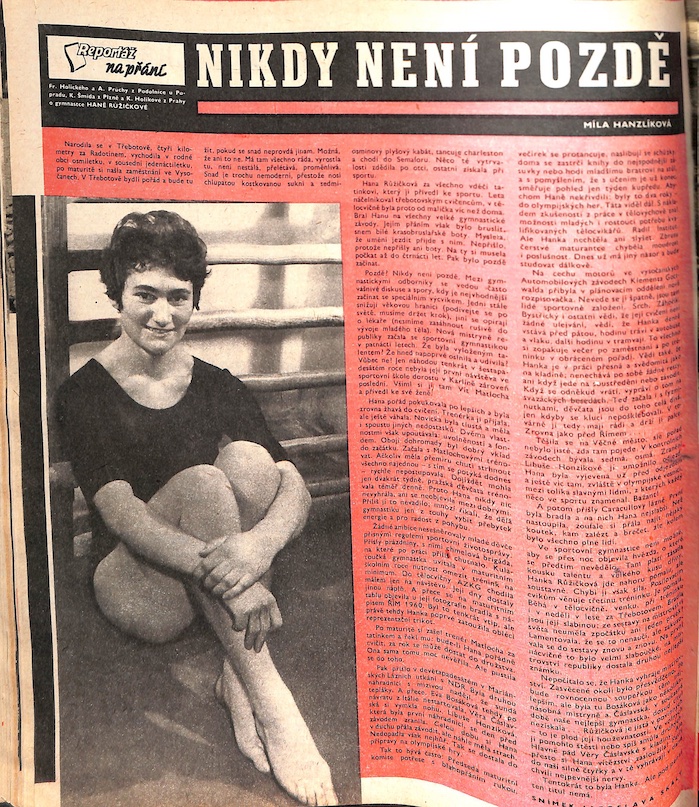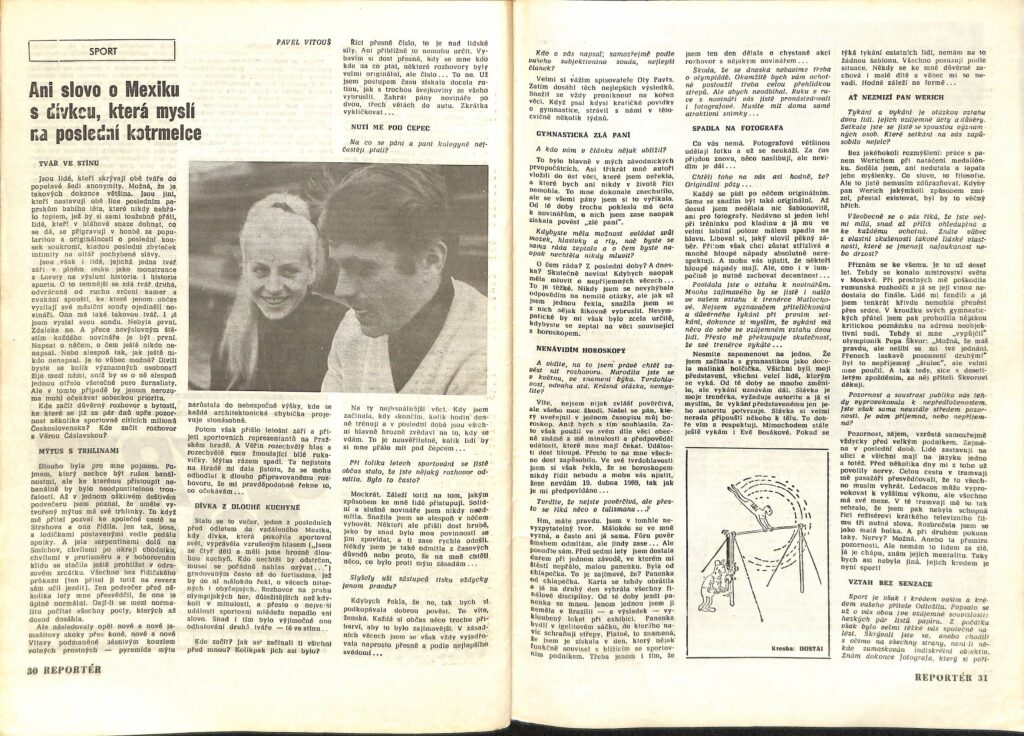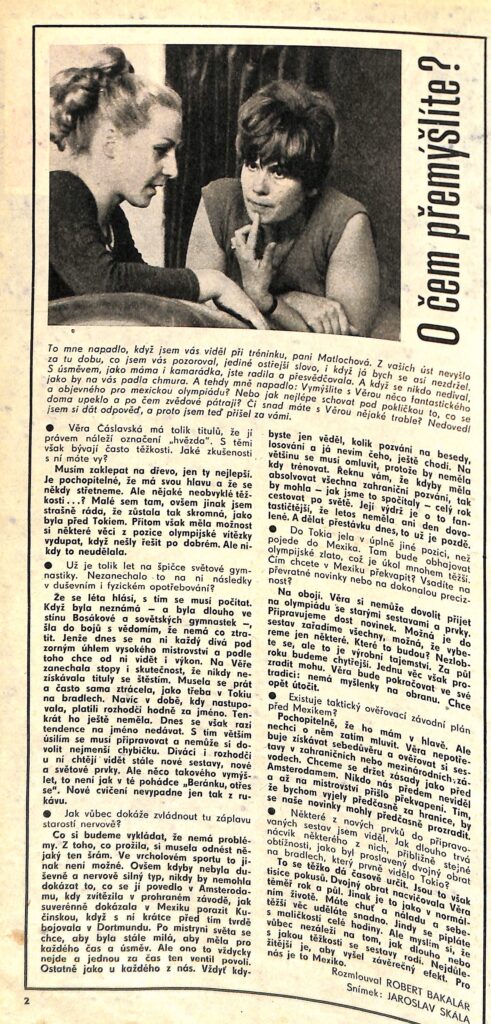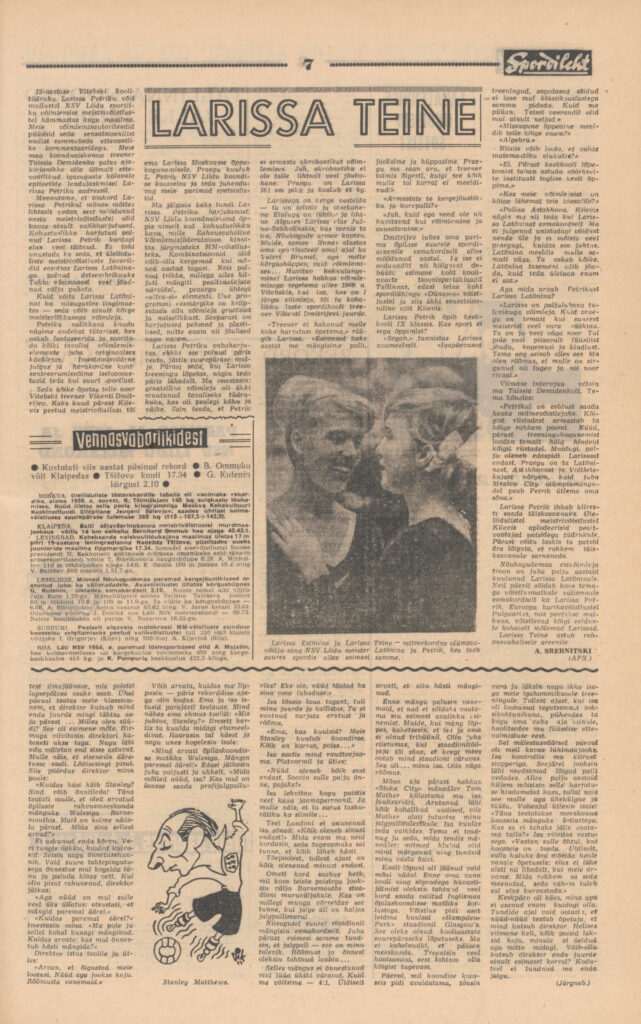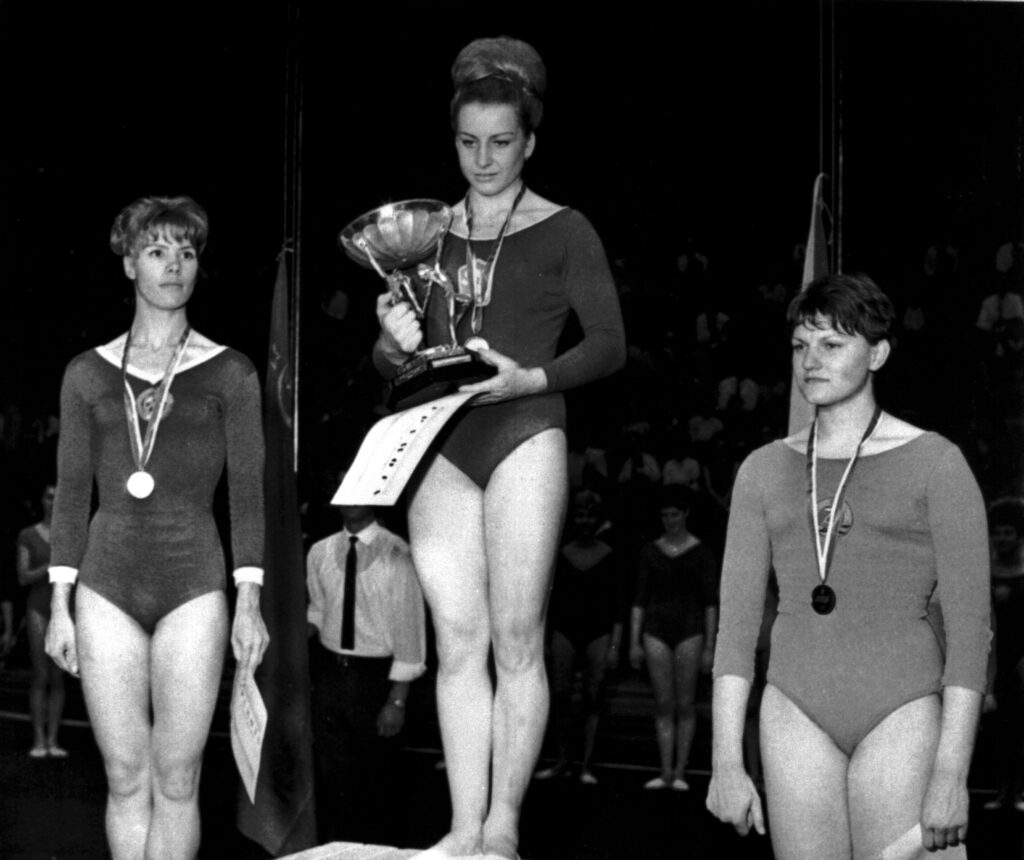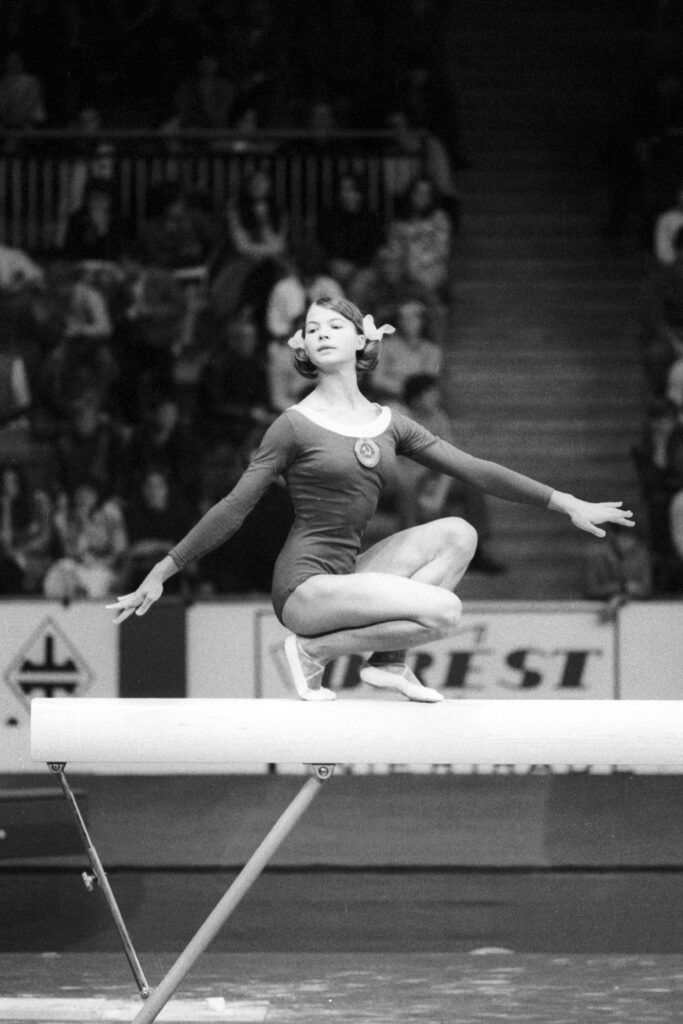At the 1962 World Championships, Přemysl Krbec of Czechoslovakia won the gold medal on vault. This was the last time that a Czechoslovak gymnast was a world champion in men’s artistic gymnastics. Since there hasn’t been much written about Krbec, I translated a profile that was published after the 1962 World Championships in Prague.
Like many gymnasts, gymnastics was not his first love. Even though both his parents were gymnasts, he loved soccer.
Heads-up: Holub, the author of this profile, tended to be a bit fanciful in his profiles of gymnasts.
